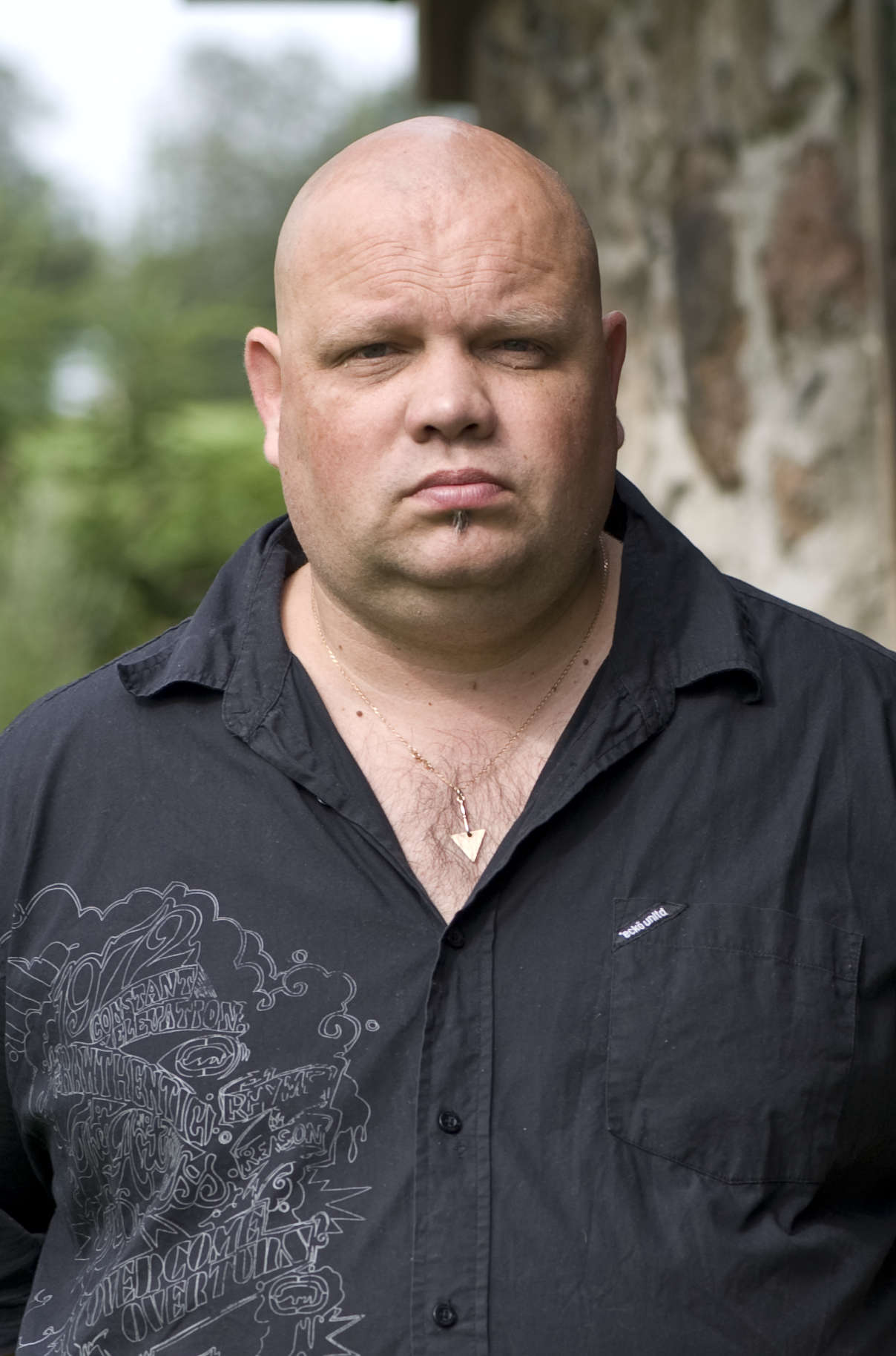
Paavo Matsin
Paavo Matsin (b. 4. IV 1970) is a prose writer and poet.
Matsin was born and educated in Tallinn, including the Tallinn Pedagogical Institute (today the University of Tallinn), the Estonian Institute of the Humanities and the Theological Institute of the Estonian Evangelical Lutheran Church, where he graduated with a dissertation on ‘C.G. Jung and alchemy’ (2003). He has worked at the Eduard Vilde and A.H. Tammsaare Museum, been a teacher at the Estonian Business School and the Viljandi Gymnasium. He has won the culture paper Sirp award for his criticism in 2011. Matsin was active in the avant-garde literary grouping 14NÜ. He is a member of the Writers’ Union (since 2005) and of the Gustav Meyrink Society of Estonia.
Doktor Schwartz, the first novel by the playful, experimental and imaginative Matsin, who rose to prominence in the second decade of the twenty-first century, appeared in 2011, winning the Siugjas Sulepea (‘Snaky Pen’) literature award. This is unique in Estonian literature in dealing with alchemy, and the scene of action moves from Tallinn and Viljandi to Prague and Cairo. The novel is characterised by a cryptic intertextuality, difficult for the reader to grasp, some of which returned in the next novel, Sinine kaardivägi (‘The Blue Guard’, 2013), the main backdrop for which is Riga. Characteristic of Matsin are a grippingly observed urban atmosphere, and various interlinked (mystical) symbols. Multi-layered, multi-levelled action, playing with time, space and history, colourful characters and situations – all these are typical of Matsin’s breakthrough novel Gogoli disko (‘Gogol’s Disco’, 2015), in which the Russian classic writer Nikolai Gogol appears resurrected in a Viljandi of the future, under the rule of Tsarist Russia. The novel, with elements of magic realism, is at the same time an anti-Utopia and a parody of it. It won the Literature Endowment Annual Award and the European Union literature prize (2016).
The names of the author add to the playfulness of Matsin’s novels: for Sinine kaardivägi, Pāvs Matsins, Pasha Matshinov in Gogoli disko, and in the case of the novel Must päike (‘Black Sun’, 2017), Friedrich Reinhold Kreutzmatsin. Central to this last one is the town of Võru and the Estonian literary classic and author of the national epic Friedrich Reinhold Kreutzwald and the cranes. Birds, specifically the ravens of the Tower of London, also have an important place in the novel Kongo tango (‘Congo Tango’, 2019, 1st place in the Estonian Writers’ Union novel competition), which shifts through European towns with Matsin’s typical multi-layered mashing of the old European strata of culture. The blend of a haunting, extraordinary (mysterious) atmosphere, wild allusions, esoteric undercurrents and peculiar humour has become Matsin’s main trademark.
A. K. (Translated by C. M.)
Books in Estonian
Novels
Doktor Schwarz: alkeemia 12 võtit. Viljandi: Lepp ja Nagel, 2011, 75 lk.
Pāvs Matsins, Sinine kaardivägi. Viljandi: Lepp ja Nagel, 2013, 102 lk.
Paša Matšinov, Gogoli disko. Viljandi: Lepp ja Nagel, 2015, 143 lk. [2. trükk: 2016.]
Friedrich Reinhold Kreutzmatsin, Must päike. Viljandi: Lepp ja Nagel, 2017, 174 lk.
Kongo tango: lugu raskemeelsest inglist. Viljandi: Lepp ja Nagel, 2019, 231 lk.
Short prose
Kaks muinasjuttu: täiskasvanutele. Tallinn: Talmar & Põhi, 1994, 108 lk.
Manxxvrite aeg = Время для маневров. Tallinn: Talmar & Põhi, 1996, 29 lk.
Aabits. Tallinn: Rühmitus „14NÜ“, 2000, 33 lk.
Poetry
Interlineaaria. Tallinn: Talmar & Põhi, 1998, 67 lk.
Carolus Ernestus Baer: poeem. Tallinn: Koolibri, 2013, 45 lk.
Children’s literature
Väike viiul ja kassimaffia: jutustus. Tallinn: Valgus, 1998, 40 lk.



